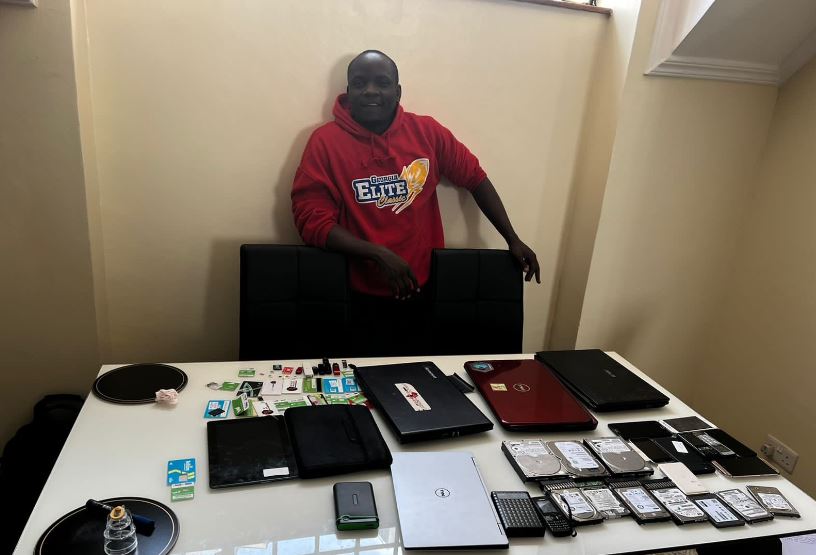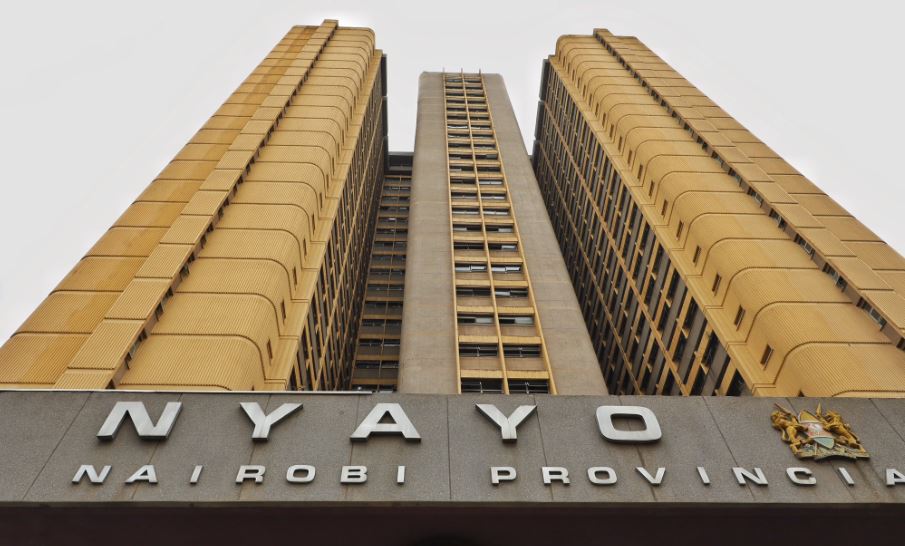
This is after detectives conducted a comprehensive system audit of the NTSA Transport Integrated Management System (TIMS) after suspecting that crooked NTSA officials were operating back office accounts to register motor vehicles fraudulently.
In the ongoing probe conducted by Cybercrime sleuths based at the National Forensic Laboratory, the main suspect identified as Jimmy Kibet Wayans, was arrested at a house in Lavington where he operated a suspicious account that had infiltrated the TIMS system to illegally introduce vehicles.
For instance, in March and April alone, 47 vehicles had their chassis changed while 54 were fraudulently added into the system, laying bare the extent of the fraud perpetuated by the criminals. Further investigations reveal that the suspect who is not an employee of NTSA had major back office roles and was in control of several other fictitious user accounts in the NTSA system.
Detectives are also investigating how a deactivated account belonging to a former ICT officer at NTSA was reactivated and was being used for back-office transactions, several months after he had tendered his resignation in July 2022.
Following the revelation, three NTSA employees Anthony Waithaka, David Migwi, and David Kimaren were also arrested, in the elaborate criminal enterprise that also involves officials from the Kenya Revenue Authority.
So far, one suspect from KRA identified as Boniface Njoroge has been arrested as detectives burn the midnight candle to bring all the suspects involved in this high-level fraud denying the government the much-needed revenue to book. Also arrested were Denis Wafula, Anthony Kariuki, and Marvin Renisi. Others are Julius Kiprop, Amos Muthaki, and Caleb Odiambo.
Previously, a comprehensive expose by ‘FichuakwaDCI’ had unmasked how crooked officials at the motor vehicle registration body colluding with rogue staff working in Microfinance institutions and street brokers had made the lives of vehicle owners unbearable. This is after detectives uncovered an elaborate scheme where one motor vehicle registration number and its logbook would be registered to more than one vehicle and the fraudulent logbook used to secure loans from banks and microfinances.
Before the bona fide owner of the logbook realized that his/her logbook had secured a loan, auctioneers from the microfinances involved would be rudely knocking on their doors, to impound and sell the vehicles for not ‘servicing’ loans that they did not take. This was followed by the arrest of two men who were busted at a cyber cafe located in Ngara, along Desai road, with 450 genuine motor vehicle logbooks.
At the cyber, an application for a logbook would take a few hours before it was delivered from an insider at NTSA while other Kenyans waited for their documents for months. The mastermind of the syndicate would also illegally develop affidavits and commission them, before sending them to their contacts at NTSA for forced transfer of motor vehicles.
In a matter of minutes, the transfer of a motor vehicle would be finalized exposing the possibility of one’s vehicle being transferred without their knowledge. This among other complaints from frustrated Kenyans cast the National Transport and Safety Authority on the spot, prompting the ongoing probe sanctioned by the DCI Director, Mr Mohamed Amin.
Recently the Roads and Transport Cabinet Secretary visited NTSA headquarters where he assured Kenyans that sanity would be restored at the agency.
Meanwhile, members of the public are cautioned to be wary of brokers who obtain money from them on the pretext of expediting the processing of motor vehicle logbooks, reflective plates, and driving licenses. Instead, they are advised to make use of the TIM portal.
The suspects face several counts including obtaining registration by false pretense contrary to section 320 of the penal code, unauthorized access contrary to section 14(1) of the Computer Misuse and Cyber Crime Act, access with intent to commit a further offense, and unauthorized interference all under the same act.
By the Directorate of Criminal Investigations(DCI)









